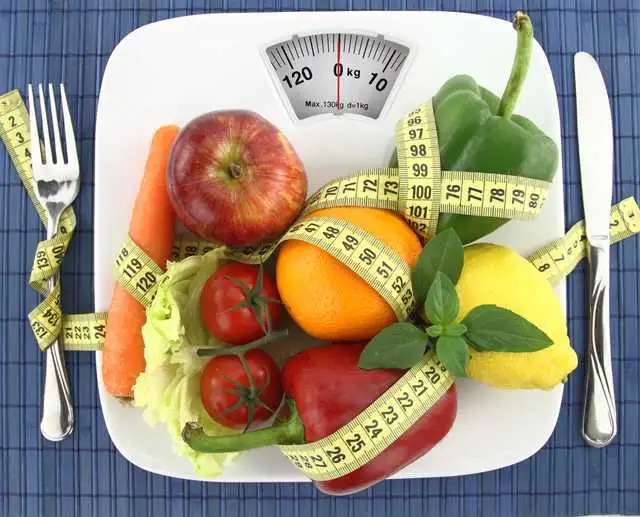Introduction
Weight loss is one of the most discussed health topics worldwide, yet it remains a challenge for millions. The quest for shedding extra pounds is not just about looking good—it’s about feeling healthier, improving your energy levels, and reducing the risk of chronic diseases. In this comprehensive guide, we’ll explore the science behind weight loss, effective strategies, and lifestyle habits that ensure long-term success. Whether you’re just starting your weight loss journey or seeking ways to break through a plateau, this guide has something for everyone.
Understanding Weight Loss
Weight loss occurs when the body burns more calories than it consumes. This calorie deficit forces the body to tap into stored fat for energy. While the basic principle seems simple, achieving sustainable weight loss is more complex and requires a balanced approach combining diet, exercise, and mental well-being.
Key Factors Affecting Weight Loss:
- Metabolism: The speed at which your body burns calories plays a significant role.
- Hormones: Insulin, leptin, and cortisol levels can influence weight gain or loss.
- Genetics: Some individuals naturally have a faster metabolism, affecting weight loss ease.
- Lifestyle: Sleep, stress, and physical activity directly impact weight management.

The Science of Weight Loss
Understanding the science behind weight loss helps in creating realistic goals. The two main components are:
1. Calories In vs. Calories Out
Weight loss is fundamentally about energy balance. If you consume fewer calories than you burn, your body starts using fat reserves. However, extremely low-calorie diets can backfire by slowing metabolism, causing nutrient deficiencies, and triggering fatigue.
2. Role of Macronutrients
Macronutrients—proteins, carbohydrates, and fats—affect weight loss differently:
- Protein: Boosts metabolism, reduces appetite, and helps preserve muscle during weight loss.
- Carbohydrates: The right kind of carbs (whole grains, vegetables) provide energy and fiber, aiding satiety.
- Fats: Healthy fats (avocados, nuts, olive oil) support brain function and hormone production.
3. Importance of Exercise
Physical activity is crucial for effective weight loss. While diet controls fat loss, exercise helps maintain muscle mass, improve metabolism, and boost overall health.
Effective Weight Loss Strategies
1. Balanced Diet
A sustainable weight loss diet includes:
- Plenty of vegetables and fruits
- Whole grains instead of refined carbs
- Lean proteins such as chicken, fish, and legumes
- Healthy fats
- Limited sugar and processed foods
2. Portion Control
Even healthy foods can lead to weight gain if consumed in large quantities. Learning to recognize serving sizes and practicing mindful eating is vital.
3. Regular Exercise
Incorporate both cardio and strength training:
- Cardio: Running, swimming, or cycling increases calorie burn.
- Strength Training: Builds muscle, which burns more calories at rest.
4. Stay Hydrated
Drinking water before meals can reduce hunger and improve digestion. Water also supports metabolism and aids in detoxifying the body.
5. Sleep and Stress Management
Lack of sleep and high stress can increase appetite and cravings. Aim for 7–8 hours of quality sleep and practice stress-relieving techniques like meditation, yoga, or deep breathing.
Common Weight Loss Mistakes
Many people struggle with weight loss due to common mistakes:
- Skipping Meals: This can slow metabolism and increase overeating later.
- Relying on Fad Diets: Quick-fix diets are usually unsustainable and can be harmful.
- Neglecting Strength Training: Focusing only on cardio can lead to muscle loss.
- Ignoring Consistency: Weight loss requires patience and consistent habits.
Mindset for Successful Weight Loss
Weight loss is as much mental as physical. A positive mindset can significantly impact results.
- Set Realistic Goals: Small, achievable targets keep motivation high.
- Track Progress: Journaling food intake and exercise routines can reveal patterns.
- Celebrate Milestones: Reward yourself with non-food treats to stay motivated.
Supplements and Weight Loss
While natural diet and exercise are the most effective, certain supplements can support weight loss:
- Protein Powder: Helps meet protein requirements and preserves muscle.
- Green Tea Extract: Boosts metabolism and fat oxidation.
- Fiber Supplements: Increases satiety and reduces calorie intake.
Note: Always consult a healthcare professional before starting any supplement.

Weight Loss for Different Body Types
Everyone’s body responds differently. Understanding your body type can help tailor your weight loss approach:
- Ectomorph (Thin Build): Focus on strength training and balanced nutrition.
- Mesomorph (Muscular Build): Combine cardio with weight training for fat loss.
- Endomorph (Curvy/Soft Build): Prioritize low-calorie diet and regular cardio.
Long-Term Weight Loss Maintenance
Losing weight is one challenge; keeping it off is another. Strategies for maintaining weight loss include:
- Continuing regular exercise
- Monitoring portion sizes
- Eating whole, nutrient-dense foods
- Avoiding returning to old habits
- Staying consistent with sleep and stress management
Inspiring Weight Loss Success Stories
Reading about real-life success stories can be motivating. People have transformed their lives by combining healthy eating, exercise, and a strong mindset. These stories demonstrate that weight loss is achievable, sustainable, and life-changing.
Weight Loss Myths Debunked
- Myth 1: Carbs are bad for weight loss.
Truth: Whole carbs are essential for energy and satiety. - Myth 2: You can target fat loss in specific areas.
Truth: Spot reduction is a myth; overall fat loss is needed. - Myth 3: Skipping meals speeds up weight loss.
Truth: Skipping meals slows metabolism and may lead to overeating.
The Role of Technology in Weight Loss
Today, apps and devices can help track calories, steps, and workouts, making weight loss more manageable. Wearables, smart scales, and fitness apps provide real-time feedback and encourage accountability.

Conclusion
Weight loss is a journey that requires commitment, patience, and the right approach. By understanding the science, adopting healthy lifestyle habits, and maintaining a positive mindset, anyone can achieve sustainable results. Remember, weight loss is not just about fitting into a smaller size—it’s about improving your overall health, energy, and confidence.
Start today by setting realistic goals, making small changes, and staying consistent. Every step forward is a step toward a healthier, happier you.

